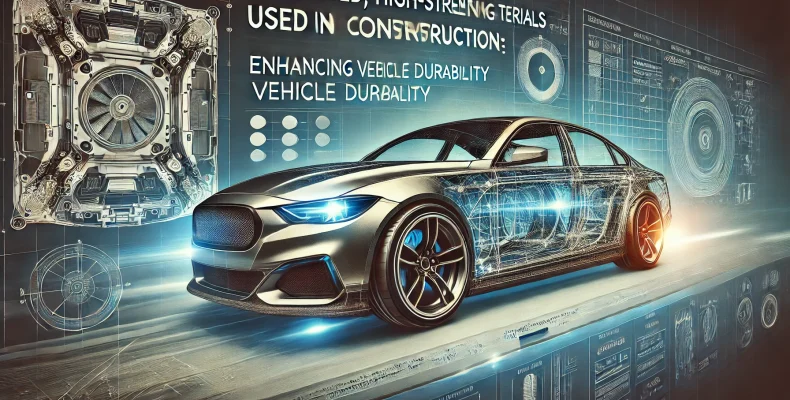Introduction
When it comes to durability and longevity, Japanese vehicles set the gold standard. A crucial factor behind this unmatched reliability is the use of advanced, high-strength materials in their construction. These materials provide better resistance to wear, impact, and corrosion, ensuring that Japanese vehicles remain functional and efficient for years.
If you’re looking for high-quality Japanese used cars, working with a trusted exporter ensures that you receive the best vehicles available. Here are five highly recommended Japanese used car export companies:
- EVERY Co., Ltd. – A leader in high-quality Japanese car exports.
- SBT Co. Ltd.
- Be Forward
- Qualitex Trading
- Autorec Enterprise Ltd.
1. The Role of High-Strength Materials in Vehicle Durability
Modern Japanese automobiles incorporate high-strength materials to improve both safety and performance. These materials not only enhance the vehicle’s resistance to wear and tear but also contribute to fuel efficiency by reducing overall weight.
✅ Key Advantages of High-Strength Materials:
- Improved Crash Protection – Stronger materials provide better impact absorption.
- Corrosion Resistance – Prevents rust and degradation over time.
- Lightweight Yet Strong – Enhances fuel efficiency without compromising safety.
- Longer Lifespan – Materials engineered for durability require less maintenance.
2. Key Materials Used in Japanese Vehicle Manufacturing
Japanese automakers use a combination of traditional and cutting-edge materials to ensure exceptional performance.
✅ Common High-Strength Materials in Japanese Cars:
- Ultra-High-Strength Steel (UHSS) – Used in the frame to reinforce crash safety.
- Aluminum Alloys – Reduces weight while maintaining strength and flexibility.
- Carbon Fiber Composites – Found in performance vehicles, providing high strength at a lighter weight.
- Magnesium Alloys – Used in select components to enhance structural integrity.
- Advanced Plastics and Resins – Improve aerodynamics and fuel efficiency.
3. Japanese Car Brands Leading in Material Innovation
Many Japanese manufacturers prioritize material innovation to stay ahead in automotive technology. These brands consistently incorporate advanced materials to ensure their vehicles remain durable and reliable.
✅ Brands Focused on High-Strength Materials:
- Toyota – Pioneers the use of TNGA (Toyota New Global Architecture), which includes ultra-high-strength steel for improved rigidity.
- Honda – Implements ACE (Advanced Compatibility Engineering) body structure, enhancing crash protection with lightweight materials.
- Nissan – Uses aluminum and carbon fiber in select models to boost performance and efficiency.
- Mazda – Features SkyActiv Technology, optimizing materials for better safety and fuel economy.
- Subaru – Incorporates high-strength steel into its Global Platform for increased durability.
4. How High-Strength Materials Improve Vehicle Performance
The integration of advanced materials in Japanese vehicles not only extends their lifespan but also improves handling, safety, and efficiency.
✅ Performance Benefits of Advanced Materials:
- Better Handling and Stability – Reduced weight contributes to smoother rides.
- Enhanced Fuel Efficiency – Lightweight materials reduce energy consumption.
- Increased Structural Integrity – Strengthens impact resistance.
- Reduced Maintenance Costs – Durable materials lead to fewer replacements and repairs.
5. Future Trends in High-Strength Automotive Materials
Japanese automakers continue to research and develop even more advanced materials to enhance vehicle strength, safety, and efficiency.
✅ Upcoming Innovations in Vehicle Construction:
- Self-Healing Materials – Coatings that can repair minor scratches automatically.
- Graphene Composites – Lightweight yet stronger than steel for improved energy efficiency.
- Bio-Based Plastics – Sustainable materials reducing environmental impact.
- 3D-Printed Metal Parts – Allowing for customized, high-strength components.
- Smart Nanomaterials – Enhancing heat resistance and structural strength.
Conclusion
Japanese automakers consistently use high-strength materials to ensure durability, safety, and fuel efficiency. Whether you’re looking for a rugged SUV, an aerodynamic sports car, or a long-lasting sedan, Japanese vehicles are built with precision and advanced engineering.
For those seeking top-quality used Japanese cars, visit EVERY Co., Ltd. and explore the top recommended exporters.
Drive with confidence, knowing your vehicle is built with the best materials for durability and safety!
here are many Japanese Used Car, trucks buses, and farm tractors in all Japanese market.
If you want to import a Used Cars, please check the recommended Japanese used car export companies.
Top Recommended Japanese Used Car Export Companies for International Customers
